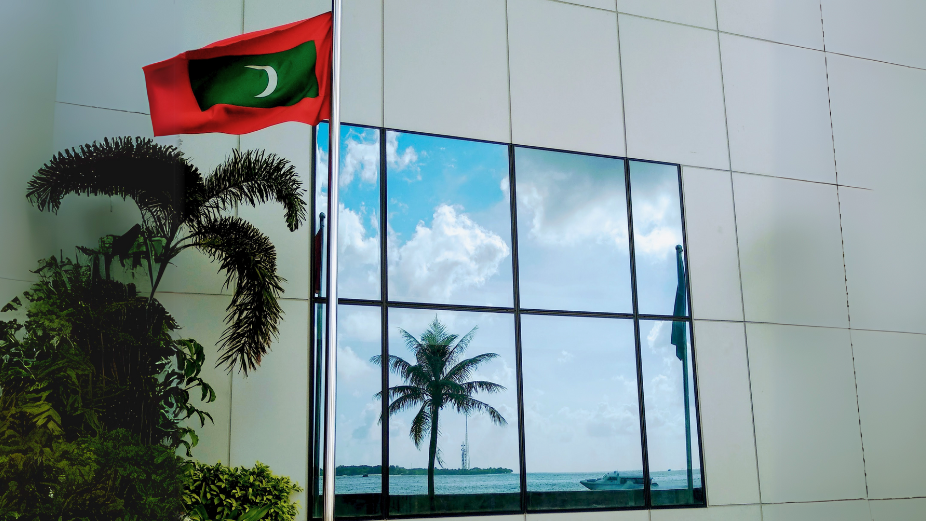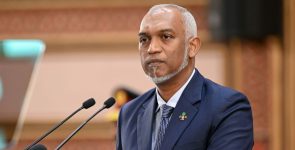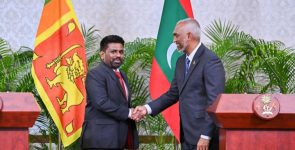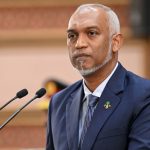
In a recent interview with PSM News, Foreign Minister Dr. Abdulla Khaleel described President Dr. Mohamed Muizzu’s “Maldives First” policy as a transformative shift in the country’s foreign policy, emphasising sovereignty, balanced bilateral relations, and development priorities. While the policy’s intent has been to prioritise the nation’s interests, its implementation has been fraught with challenges and unintended consequences that question its overall success.
Promises of Sovereignty and Balanced Partnerships
Minister Khaleel highlighted significant achievements during the administration’s first year, including high-level engagements with China and Türkiye, which he claimed have bolstered the Maldives’ economic prospects and development. The policy’s core principle of avoiding over-reliance on any single country was hailed as a safeguard for sovereignty. Additionally, Dr. Khaleel praised President Muizzu’s commitment to expatriate Maldivians, underscoring the administration’s efforts to address their concerns.
However, while these initiatives are commendable, the government’s overall foreign policy approach has drawn criticism for its diplomatic missteps and missed opportunities.
Diplomatic Strains with India and Their Fallout
The decision to make Türkiye the destination of President Muizzu’s first state visit—a departure from the Maldives’ long-standing tradition of prioritising India—was seen as a shift in the Maldives’ foreign policy orientation. This decision coincided with a campaign promise to reduce the Indian military presence in the Maldives, which heightened tensions with India, one of the Maldives’ closest allies and largest economic partners.
Relations were further strained in early 2024 when three Maldivian deputy ministers posted derogatory comments about Indian Prime Minister Narendra Modi. The officials caused an uproar in India. The backlash led to the #BoycottMaldives movement on social media, spearheaded by Indian celebrities and influencers. This campaign contributed to a sharp decline in Indian tourist arrivals, a critical source of revenue for the Maldives. Indian tourist arrivals dropped significantly, with fewer than 11,000 visitors in January 2024, directly impacting the Maldivian economy.
Unsuccessful Efforts to Secure Alternative Financing
As the Maldives sought to diversify its foreign relations under the “Maldives First” policy, attempts to secure financing from oil-rich Middle Eastern nations largely failed. Diplomatic visits to countries such as Saudi Arabia and the UAE yielded few tangible outcomes, with promised investments failing to materialise. Despite the administration’s optimism, these trips did little to alleviate the Maldives’ mounting debt crisis or secure alternative economic partnerships.
Compounding this issue, the government has relied on India for financial support, receiving a $760 million bailout package to stabilise its reserves. This reliance underscores the difficulty of achieving self-reliance and reducing dependency on traditional partners while maintaining economic stability.
Tourism and Economic Vulnerabilities
The economic impact of the Maldives’ diplomatic struggles has been particularly evident in its tourism sector. With India previously accounting for the largest share of tourist arrivals, the sharp decline caused by strained relations and the #BoycottMaldives campaign has created a ripple effect across the economy. Resorts, guesthouses, and businesses reliant on Indian tourists have faced challenges, highlighting the fragility of the Maldives’ tourism-dependent economy.
Has the ‘Maldives First’ Policy Backfired?
The “Maldives First” policy set out to redefine the nation’s foreign relations by prioritising sovereignty and balanced partnerships. While it has achieved certain successes, the government’s inability to secure alternative financing, manage relations with key allies like India, and navigate the economic fallout of diplomatic missteps raises questions about the policy’s effectiveness.
Ultimately, the administration’s ambitious vision for sovereignty and diversification has, at times, come at the expense of economic stability and long-standing partnerships. Moving forward, a more pragmatic approach may be needed to reconcile the policy’s ideals with the realities of international diplomacy.











